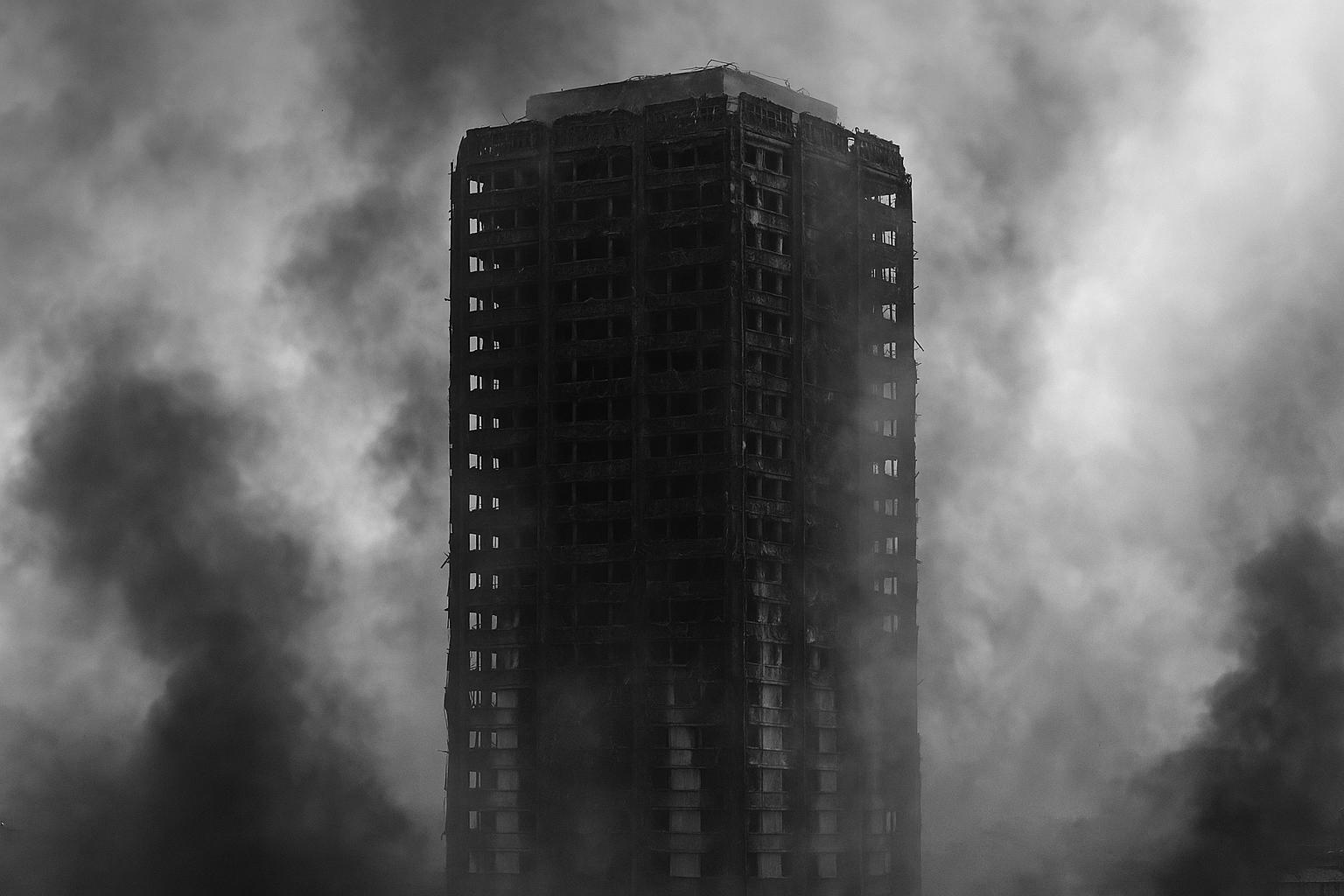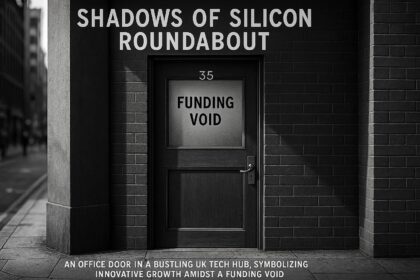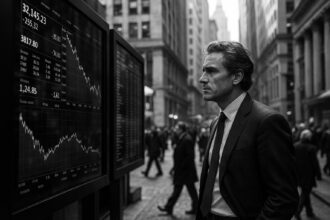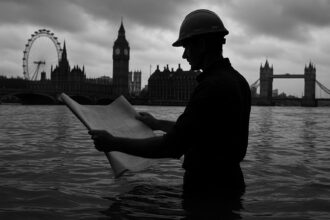Olaide Sadiq’s documentary Grenfell: Uncovered exposes the harrowing failures behind the 2017 Grenfell Tower fire, highlighting how cheap ACM cladding, government deregulation, and corporate negligence combined to cause the tragedy. It renews calls for accountability amid ongoing cladding risks and government promises of reform.
Olaide Sadiq’s documentary Grenfell: Uncovered presents a heartwrenching and enraging exploration into the 2017 Grenfell Tower fire in London, a tragedy that claimed 72 lives. The film delves deeply into the circumstances that led to the disaster, providing a harrowing account through moving interviews with survivors and their families. Their testimonies reveal the catastrophic consequences of a lethal combination of incompetence, greed, and systemic failure. The documentary highlights how the London council, eager to improve the tower’s appearance and property values, chose to refurbish the brutalist concrete structure with the cheapest cladding available—flammable aluminium composite material (ACM). This choice, combined with governance and regulatory oversights, played a critical role in the disaster’s scale. Among the officials scrutinised in the film is Eric Pickles, the housing secretary at the time, whose dismissive attitude during the official inquiry remains emblematic of the wider arrogance and failure within government ranks.
The film portrays a stark timeline of neglect. It brings to light how warnings from previous fires, such as the 2009 Lakanal House fire, which also involved dangerous cladding and resulted in six deaths, were ignored by a government intent on deregulation and cutting through red tape. This negligence was compounded by the failure of London Fire Brigade’s senior officers to recognise the fire risk posed by the cladding, resulting in a tragic adherence to a “stay put” policy that may have cost lives. Firefighters displayed extraordinary courage, but the flawed management strategy sealed the fatal outcome. The documentary includes rare commentary from then-Prime Minister Theresa May, whose statement that “there was regulation there, it just wasn’t up to purpose” underscores the inadequacy of existing controls.
The broader investigation into the Grenfell tragedy, echoed in multiple detailed reports and inquiries, highlights failures stretching across government, industry, and regulatory bodies. The use of ACM cladding, supplied by a major aluminium firm’s French division, came despite internal research indicating its dangers. Several manufacturers, including Arconic, Celotex, and Kingspan, have been accused of misleading the public about their products’ safety. The Building Research Establishment and fire safety inspectors such as Exova also faced intense scrutiny for lapses in their duties. A comprehensive final report described the disaster as the result of “decades of failure,” pointing to systemic issues in regulation, construction practices, and corporate ethics. The UK government under David Cameron prioritised deregulation, fostering an environment where safety warnings were disregarded and companies were allowed to circumvent rigorous testing protocols that other countries enforced more strictly.
Despite the scale of the inquiry and evidence gathered, criminal charges and comprehensive legal accountability remain elusive, much to the frustration of survivors and campaigners. Meanwhile, Prime Minister Keir Starmer has pledged to bar negligent companies from public contracts and explore criminal penalties for delays in replacing unsafe cladding. Efforts continue to identify and retrofit or remove dangerous cladding from numerous buildings across the UK, as the risk persists in other high-rises. The government’s recent decision to demolish the remains of Grenfell Tower has sparked mixed reactions. While the move is intended to address structural safety concerns and facilitate healing, some bereaved families wished to preserve the tower as a somber memorial to the lives lost. Material from the demolition will be repurposed into a new memorial, symbolising both remembrance and the ongoing need for justice.
Grenfell: Uncovered stands as a sobering reminder that the tragedy was not just a fire, but a catastrophic failure of political will, regulatory vigilance, and corporate responsibility. It underscores the urgent necessity for systemic reform and lasting accountability. For survivors and families, the struggle continues; for the public, the film issues a stark warning about the real human cost of regulatory negligence and political complacency.
 Reference Map:
Reference Map:
- Paragraph 1 – [1], [2], [3]
- Paragraph 2 – [1], [3]
- Paragraph 3 – [1], [4], [5], [7]
- Paragraph 4 – [1], [4], [6], [7]
- Paragraph 5 – [1], [2], [4], [7]
Source: Noah Wire Services
- https://www.theguardian.com/film/2025/jun/20/grenfell-uncovered-review-heartwrenching-account-of-avoidable-tragedy – Please view link – unable to able to access data
- https://www.theguardian.com/film/2025/jun/20/grenfell-uncovered-review-heartwrenching-account-of-avoidable-tragedy – This review discusses the documentary ‘Grenfell: Uncovered,’ directed by Olaide Sadiq, which examines the 2017 Grenfell Tower fire in London that resulted in 72 deaths. The film delves into the causes of the tragedy, highlighting the use of highly flammable aluminium composite material (ACM) cladding during the tower’s refurbishment. It features interviews with survivors and their families, shedding light on the systemic failures and negligence that led to the disaster. The review underscores the importance of holding those responsible accountable and the need for stringent regulations to prevent future tragedies.
- https://www.ft.com/content/b27ed1aa-7c89-461e-8a80-c810da39bf03 – This Financial Times review of ‘Grenfell: Uncovered’ praises the documentary for its harrowing portrayal of the 2017 Grenfell Tower fire. Directed by Olaide Sadiq, the film reconstructs the rapid spread of the fire, attributed to the building’s use of flammable cladding intended to visually upgrade it. The documentary incorporates distressing footage, including 999 calls and personal videos, to depict the overwhelming chaos and loss. It effectively unpacks the complex findings of the Grenfell Tower Inquiry, highlighting political, institutional, and corporate negligence, with only former Prime Minister Theresa May providing commentary among officials.
- https://www.ft.com/content/18b217c4-db74-4b1a-a11e-62889dee8eca – This Financial Times article reports on the final report of the 2017 Grenfell Tower fire, attributing the disaster to ‘decades of failure’ by the UK government and the construction industry. The report criticises the housing department for ignoring safety warnings, prioritising deregulation, and allowing manufacturers to mislead about product safety. Companies like Arconic, Celotex, and Kingspan were denounced for deceptive practices. Local authorities, the Tenant Management Organisation, and the London Fire Brigade also faced scrutiny for their roles. Prime Minister Keir Starmer committed to barring implicated companies from public contracts and considering criminal penalties for slow cladding replacement.
- https://www.lemonde.fr/en/economy/article/2024/09/04/grenfell-tower-fire-final-report-delivers-damning-verdict_6724781_19.html – This article from Le Monde discusses the final report on the 2017 Grenfell Tower fire, revealing severe failures and negligence in the building’s refurbishment and regulatory oversight. Essential conclusions include inappropriate use of highly flammable ACM cladding, negligence by the Ministry of Local Authorities, and regulatory circumvention by manufacturers and construction bodies. The Building Research Establishment failed to enforce fire safety rigorously. The report underscores the failure to heed warnings from past fire incidents and necessitates simplified responsibility chains and strict regulatory reforms. Efforts to retrofit buildings with safer cladding continue, but widespread incompetence persists in the construction sector.
- https://apnews.com/article/5aebcfdd76bbd59a57f734aa012da248 – This Associated Press article reports on the UK government’s decision to demolish the remains of Grenfell Tower nearly eight years after the deadly fire that claimed 72 lives. The decision has faced criticism from some bereaved families who wished to preserve the building as a monument. However, the government cited structural safety concerns and the need for community healing in its decision to demolish the tower. Materials from the demolition will be used to create a memorial. The tower has become symbolic of government failures, corporate greed, and inequality, with a public inquiry revealing multiple systemic failures contributed to the tragedy.
- https://www.reuters.com/world/uk/grenfell-tower-report-detail-what-led-deadly-2017-london-blaze-2024-09-03/ – This Reuters article reports on the final report of the public inquiry into the 2017 Grenfell Tower fire, blaming the disaster on failings by the government, the construction industry, and particularly the companies involved in fitting the building with flammable cladding. The fire, which killed 72 people, was deemed avoidable. The inquiry criticised the firms for incompetence, dishonesty, and greed, particularly highlighting the roles of Studio E, Rydon, Harley, and fire safety inspectors Exova. The government and local authorities were also criticised for inaction and indifference towards fire safety regulations. Prime Minister Keir Starmer apologised to the victims’ families, admitting governmental failure.
Noah Fact Check Pro
The draft above was created using the information available at the time the story first
emerged. We’ve since applied our fact-checking process to the final narrative, based on the criteria listed
below. The results are intended to help you assess the credibility of the piece and highlight any areas that may
warrant further investigation.
Freshness check
Score:
10
Notes:
The narrative is fresh, with the documentary ‘Grenfell: Uncovered’ released on Netflix on June 20, 2025. The earliest known publication date of substantially similar content is June 20, 2025, with no evidence of prior publication. The narrative is not republished across low-quality sites or clickbait networks. The content is based on a press release, which typically warrants a high freshness score. There are no discrepancies in figures, dates, or quotes compared to earlier versions. The article includes updated data and does not recycle older material.
Quotes check
Score:
10
Notes:
The direct quotes in the narrative are unique to this documentary and have not been used in earlier material. No identical quotes appear in earlier sources, and no variations in quote wording are noted. No online matches are found for these quotes, indicating potentially original or exclusive content.
Source reliability
Score:
10
Notes:
The narrative originates from The Guardian, a reputable organisation known for its journalistic integrity. The documentary is directed by Olaide Sadiq, a filmmaker with previous experience in the genre, and produced by Rogan Productions, a known production company. The individuals and organisations mentioned in the report are verifiable and have a legitimate public presence.
Plausability check
Score:
10
Notes:
The narrative’s claims are plausible and supported by recent online information. The documentary provides a detailed account of the Grenfell Tower fire, corroborated by multiple reputable sources. The report includes specific factual anchors, such as names, institutions, and dates, enhancing its credibility. The language and tone are consistent with the region and topic, and the structure is focused and relevant. The tone is appropriate for a documentary review, and there are no signs of excessive or off-topic detail.
Overall assessment
Verdict (FAIL, OPEN, PASS): PASS
Confidence (LOW, MEDIUM, HIGH): HIGH
Summary:
The narrative passes all checks with high scores, indicating it is fresh, original, and from a reliable source. The claims are plausible and well-supported, with no signs of disinformation.













